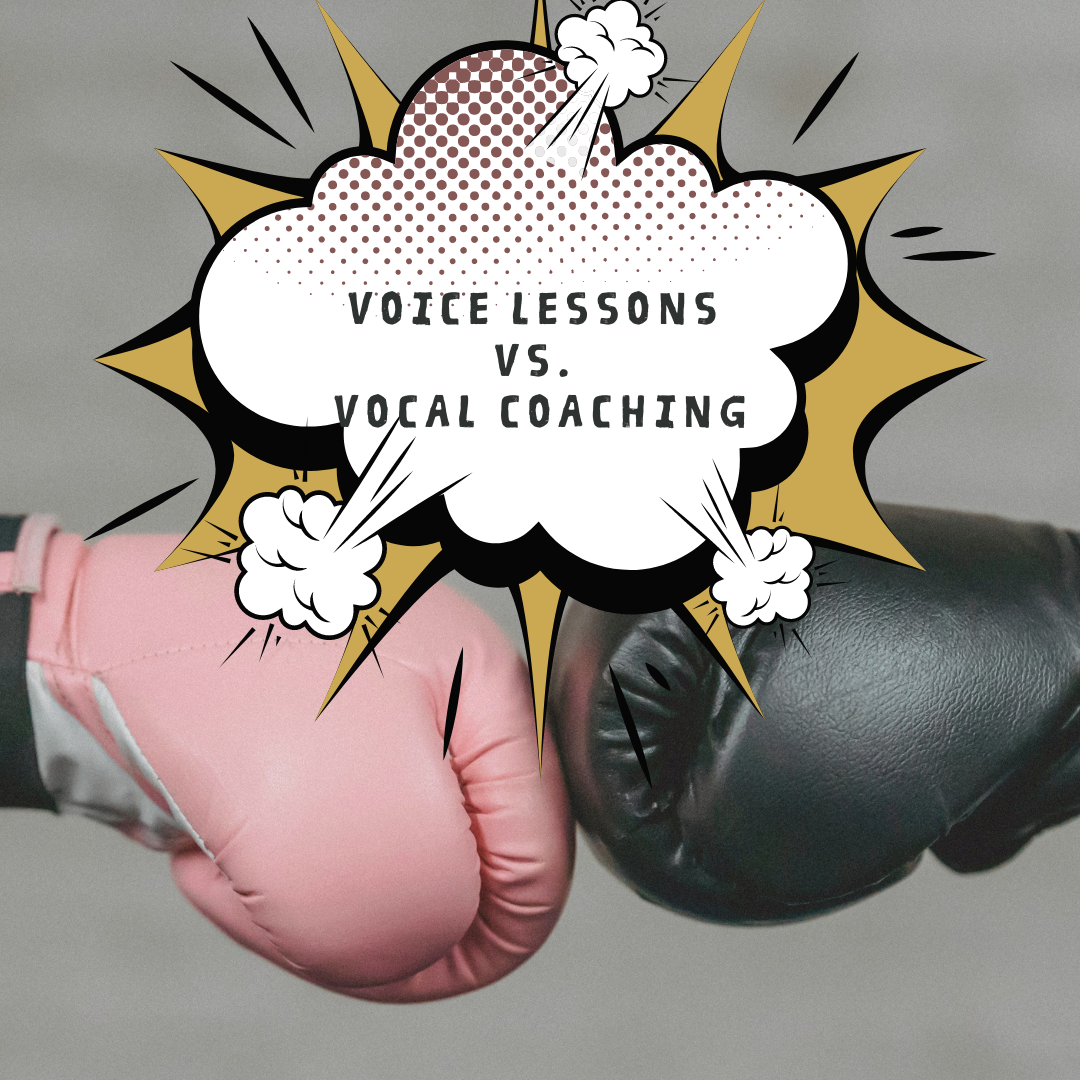|
When should you start voice lessons? What age is good to start voice lessons? Am I too old to start voice lessons? These are all really common questions I get in emails and social media posts. So let me answer this really quickly for you: You can start singing at almost any age. At any level. With any goal. BUT here is a more detailed response... What age is good to start voice lessons?Every teacher will have a different response to this but my general rule of thumb is: if they are singing, they can benefit from lessons. However, not every teacher is skilled or WANTS to teach at every age. If we are talking about very young singers, age 2-5, group singing class is very beneficial. Places like KinderMusik and Little Sprouts are a really fabulous options. As students grow through elementary school, ages 5-10, there are teachers that flourish working with this age group. Voice lessons for students at this age may include musicality, body awareness, feeling a connection to their voice, exposure to different genres of music, very basic vocal function and storytelling. A lot of fun and growth can happen at this age in lessons. Middle School, ages 11-13, is when I prefer to start taking students. My style of teaching is information heavy, and I feel that students are better able to grasp the concepts at this age. Pre-teens and young teens are often experiencing exponential amounts of growth as they start to morph into adults which means their voices are experiencing growth as well. Personally, for me, guiding a changing voice during voice lessons is a huge gift! I absolutely adore it. High school is also a fabulous time to start voice lessons. Students are older, often able to focus for longer, more in depth lessons and the wildest parts of puberty are typically behind them. NOTE: puberty affects voices differently, students should not be afraid to sing during this time! Starting lessons as an adult is very common. I get emails from folks asking if they are 'too old' to start singing. No! Never! You are never too old. The voice is an amazing thing. At every age there is something to discover. Whether you are a professional voice user or avocational voice user (looking at you karaoke bar superstars!), voice lessons are beneficial. So, long story short: ANY AGE. Any age is good to start voice lessons. If you are interested in an in-depth look at what happens at the voice during each season of life, check out The Evolving Singing Voice: Changes Across the Lifespan by Karen Brunssen. When should I start voice lessons - When should a kid start singing - What age to start voice lessons - What age to start singing lessons - Am I too old to start voice lessons - Will Voice lessons help me
0 Comments
If you are looking to improve the efficiency of your voice, a voice teacher is the right fit for you. A voice teacher will work with you on pedagogy based technique (breath, vocal function, vowels, resonance, registration, etc.), which may improve the ease in which you sing, improve your consistency and help you develop your voice. If you are hoping to grow as a performer, a vocal coach is great option. Vocal coaching is really popular in the opera world where vocal coaches are often collaborative pianists who work with the performer on their whole, on-stage performance. There are non-opera coaches who work with singers on performance applicable to their genre of music, as well as vocal style and other non-technique driven subjects. It is important to note that there are some folks in the voice world who refer to themselves as both a teacher and coach OR use the words synonymously. This is why it can be important to know your goals as a singer - are they technique driven or performance driven? Are they both? A lot of times, I find those goals go hand-in-hand and I try not to worry about the semantics of it all unless I am using "voice teacher" or "vocal coach" in a professional setting (biographies, master classes, etc). At the university level, you may find that titles are more clearly defined between professors. Do you need both? You might! With all forms of learning, I think it's important to remember that learning takes time. This applies to vocal technique, coaching, dance, sports, etc. There is no quick fix. The more time you can dedicate to your craft, the more natural it all becomes. Finding the right mix of professionals for your journey can also take time but it is so worth it. Seattle singing teacher. Seattle voice teacher. Online singing teacher. Online voice lessons. What is a vocal coach. What is a voice teacher. Pop voice teacher. Musical theatre voice coach. Pop voice lessons,
This is a question that pops up all the time. When you spend eight hours a day teaching voice lessons, you forget that some folks have never even set foot in voice studio. Or performed a vocal exercise. Or, in some cases, sung in front of another human. This blog entry is based on my experiences as a voice teacher and a lifelong voice student. Every teacher is unique and some may have a different way of doing things.
 My old voice studio in Seattle, WA My old voice studio in Seattle, WA I start off each lesson with a short conversation with each student. I think this is an important first step for many reasons: First, I actually care about how you are. It helps me set the tone for your lesson. If you're jazzed about life, I can be jazzed along with you. If you're having a rough day, I'll adjust accordingly. Second, your emotional state directly affects your voice. The limbic system (which is in charge of your emotions) communicates with the larynx - this is why we can aurally gain clues to someone's feelings, just by listening to them. Third: I am listening to your speaking voice for clues on how your voice is feeling or behaving that day. Hoarseness, sniffles, cracks, lack of range, etc., all tell a story about you in that moment. 2. Warmup/ Exercises This is the part of the lesson where you sing a series of notes, typically in a particular pattern, with some kind of vowels, consonants, words or nonsense combinations. A lot of first time singers always remark how 'silly' it can feel. A good series of warmups should a) help your voice stretch and move to get ready for singing and b) focus on a particular vocal task to help your voice achieve a new or more efficient sound. Warmups may also help with ear training or style development. When I am teaching, I choose vocal exercises with that particular student in mind. No two lessons are the same. 3. Repertoire (singing a song) After you've warmed up, you'll typically sing through a chosen song with piano accompaniment or maybe an accompaniment track (YouTube, Spotify, Appcompanist, etc). Some teachers aren't comfortable accompanying their students and others feel very comfortable. I love to accompany my students when possible because I LOVE musical collaborations. Some days you may sing through an entire song and other days just focus on a small section. There are lots of things to work through in each song you bring to your lesson. It's important to note that there is a difference between a voice teacher and a vocal coach. If you are studying with a voice teacher, you may only work on technique (things to help you sing the song more efficiently - vowels, breath, tension release, etc.). If you are studying with someone who is both a voice teacher AND a coach, you may also work on style and/or character development. Some folks are both a teacher and a coach, others may only be one or the other. You may work on the same song for weeks or months. Other times you may switch songs often. This is largely dependent on the teacher. I don't mind if students switch songs week to week, or before we've fully mastered them, UNLESS we are working towards a specific goal. It is really important to me that you like what you're singing. 4. Cool down This is not something I do every time with each student. Sometimes it's necessary to bring the voice back to a nice, comfy, neutral spot...especially if we've been doing some really intense singing. You can read about cool down exercises here. If you'd like to schedule a lesson with Jordyn, please send an email to [email protected] What are voice lessons like - Online Voice Lessons - Singing Teacher Online - Seattle Voice Lessons - Online Vocal Coach
 Thanks to the global pandemic, "Zoom" is a household word that everyone is sick of hearing. Back in March 2020, I would have told you that taking an online lesson was vastly different than taking an in-person lesson but now, after hundreds of hours logged on Zoom teaching voice, I can confidently tell you...it is actually a great alternative. There are, of course, downsides to online lessons - questionable internet connections, technical issues, lack of in-person, human contact BUT there are so many positives that outweigh those 'negatives'. Here are some positives for online voice lessons via Zoom:
If you'd like to schedule a voice lesson or coaching with Jordyn, please send an email to: [email protected] Online voice lessons - Seattle Voice Lessons - Pop Voice Lessons - Musical Theatre Lessons - Online Vocal Coach - How to sing better - Zoom Lessons - Zoom Voice Lessons - Are Zoom Lessons worth it?
|
AuthorJordyn Day is a voice teacher and vocal coach in Seattle and online across the world. She is passionate about vocal technique and making contemporary style accessible to all. ArchivesCategories |




